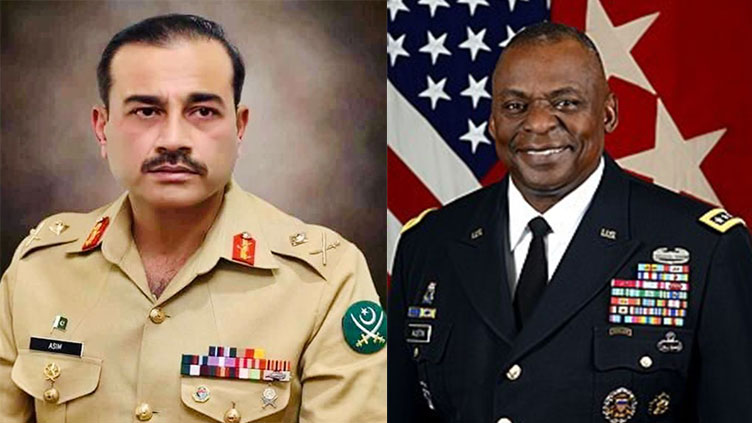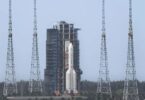Chief of the Army Staff General Asim Munir discussed a string of issues with a special focus on security matters during a phone call with US Defence Secretary Llyod J. Austin, on Wednesday. Both leaders discussed areas of mutual interest and recent regional developments and emphasized the need for greater liaison and cooperation between the militaries of the two nations.
Pakistan and the United States have a long history of bilateral relations and partnership. Both countries have enjoyed a multifaceted and broad-based relationship, driven by mutual interests and cooperation in all walks of life ranging from education, trade and investment to Intelligence collaboration, defence, and security. Historically, the resource-deficient and security-centric Pakistan remained heavily dependent on American military and economic aid while American strategists successfully invented a trustworthy ally in South Asia to carry forward their anti-communism agenda in the region. Pakistan played a pivotal role in checking communism during the Cold War and the Soviet occupation of Afghanistan, while Islamabad’s bridging role in the US-China rapprochement during the 70s was the landmark achievement of Pak-US friendship. Later, Pakistan became an important Non-NATO ally of the United States in the War on Terror (WoT), brokered the Doha agreement and also facilitated US withdrawal from neighbouring Afghanistan about two years back.
Historically, Pakistan-US ties had gone through several ups and downs at periodic intervals, however military to military contacts and strategic cooperation remained in place between the two nations throughout history. On several occasions, both sides’ military establishments have played a role in melting ice and resetting ties between the two countries. Apparently, the Pak-US partnership was the need of both nations and the two countries benefited each other through political and diplomatic engagement, military cooperation, intelligence sharing, and the provision of strategic assistance in the hour of need. Pakistan is an important Muslim state that holds tremendous importance for the United States due to its geostrategic location, military power, Nuclear arsenal, association with Beijing, and political stature in the Muslim world. The same goes for Pakistan which could not afford the US’s animosity and intends to maintain its durable security and economic partnership with Washington.
Currently, the ongoing US-Russia rivalry and Sino-America tussle are at their peak and the entire world is passing through a defining movement. The bloc politics became the order of the day and caused serious foreign policy and trade challenges for the South Asian nation as Washington views Islamabad-Beijing engagement with suspicion and doubts. However, Pak-US military ties and counter-terrorism cooperation had always continued throughout the past. The current regional geopolitical situation, particularly the recent insurrection of terrorism in Pakistan, the growing risk of IS-K, and the congregation of terror outfits in neighbouring Afghanistan has specifically converged US-Pakistan interests and brought both parties on the same page against their common enemy at this point. Realistically, there had been distrust and flaws in the Counterterrorism strategies of both allies in the past that ultimately benefited the terror outfits which are flourishing right now, while Pak-US policymakers are still mulling over the scenarios to tackle that challenge once more.
Despite diverging interests in certain avenues at the global level, Pakistan and the United States have tremendous scopes for mutual teamwork and cooperation in multiple domains particularly trade and investment, renewable energy, education, science and technology, defense and security, counter-terrorism and organized transnational crimes including human trafficking, drug enforcement and smuggling. There is a dire need for concerted efforts and apolitical approaches to achieve shared objectives that would have tremendous benefits for both countries and surely would have crucial effects on regional peace and stability in the days to come.







